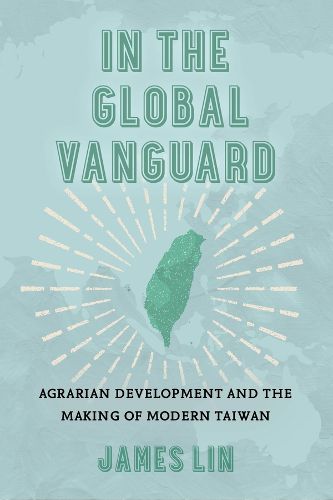Readings Newsletter
Become a Readings Member to make your shopping experience even easier.
Sign in or sign up for free!
You’re not far away from qualifying for FREE standard shipping within Australia
You’ve qualified for FREE standard shipping within Australia
The cart is loading…






A free ebook version of this title is available through Luminos, University of California Press's Open Access publishing program. Visit www.luminosoa.org to learn more.
In just half a century, Taiwan transformed from an agricultural colony into an economic power, spurred by efforts of the authoritarian Republic of China government in land reform, farmers associations, and improved crop varieties. Yet overlooked is how Taiwan brought these practices to the developing world. In the Global Vanguard elucidates the history and impact of the "Taiwan model" of agrarian development by incorporating how Taiwanese experts took the country's agrarian success and exported it throughout rural communities across Africa and Southeast Asia. Driven by the global Cold War and challenges to the Republic of China's legitimacy, Taiwanese agricultural technicians and scientists shared their practices, which they claimed were better suited for poor, tropical societies in the developing world. These development missions, James Lin argues, were projected in Taiwan as proof of the ruling government's modernity and technical prowess and were crucial to how the state sought to hold onto its contested position in the international system and its rule by martial law at home.
$9.00 standard shipping within Australia
FREE standard shipping within Australia for orders over $100.00
Express & International shipping calculated at checkout
A free ebook version of this title is available through Luminos, University of California Press's Open Access publishing program. Visit www.luminosoa.org to learn more.
In just half a century, Taiwan transformed from an agricultural colony into an economic power, spurred by efforts of the authoritarian Republic of China government in land reform, farmers associations, and improved crop varieties. Yet overlooked is how Taiwan brought these practices to the developing world. In the Global Vanguard elucidates the history and impact of the "Taiwan model" of agrarian development by incorporating how Taiwanese experts took the country's agrarian success and exported it throughout rural communities across Africa and Southeast Asia. Driven by the global Cold War and challenges to the Republic of China's legitimacy, Taiwanese agricultural technicians and scientists shared their practices, which they claimed were better suited for poor, tropical societies in the developing world. These development missions, James Lin argues, were projected in Taiwan as proof of the ruling government's modernity and technical prowess and were crucial to how the state sought to hold onto its contested position in the international system and its rule by martial law at home.